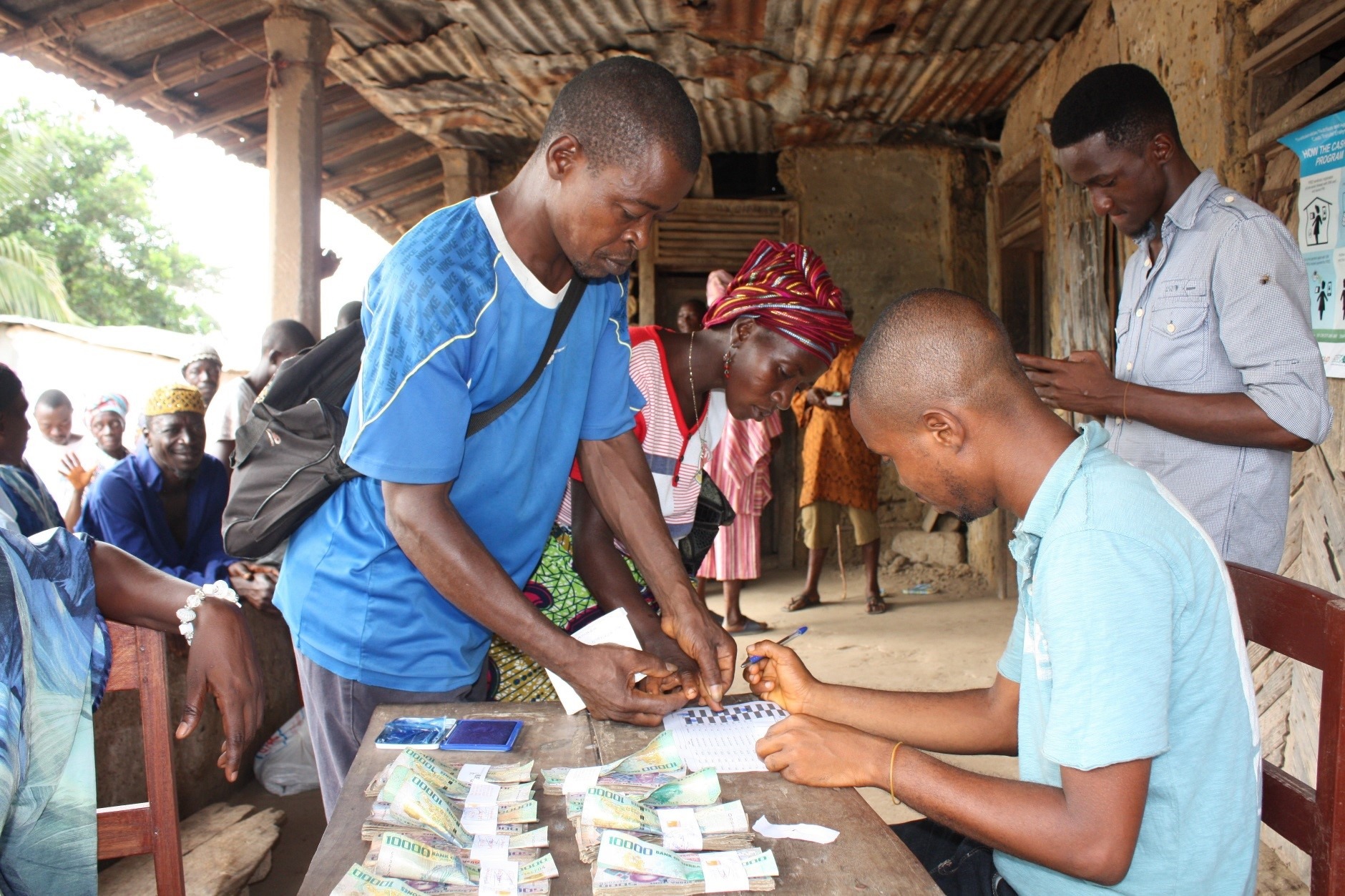
Sierra Leone’s first confirmed case of Ebola surfaced in early 2014. By July, 2014 the Government of Sierra Leone had declared a state of emergency that disrupted markets and essential agricultural activities. Over 14,000 Ebola cases emerged in the country, resulting in nearly 4,000 deaths. Economic activities and food security in the country rapidly declined. Many went without food.
To provide much-needed assistance, USAID’s Office of Food for Peace (FFP) awarded ACDI/VOCA an Emergency Food Security grant in April 2015. ACDI/VOCA built on its geographic presence and community relationships fostered under the FFP Sustainable Nutrition and Agriculture Promotion (SNAP) program to reach highly impacted EVD communities in SNAP operational areas with a new EVD recovery program branded SNAP+
The project has successfully reached 13,584 beneficiaries with cash transfers
SNAP+ Provides Cash Payments to Restore Household Food Security
The project utilized a community-based approach to identify EVD-impacted households to receive unconditional cash transfers of $30 USD/month, estimated to cover a complete food based for a family of five, over an 11-month period. ACDI/VOCA used security features imbedded in mobile phone technology platforms to verify participants and track payments.
SNAP+ distributed cash in Kailahun, Bombali, and Tonkolili districts of northern and eastern Sierra Leone. Cash recipients—from elderly widows to teenaged mothers, male and female heads of households—used the money primarily to purchase rice and other food items. Many report going hungry during the Ebola crisis, skipping meals, and struggling to provide for their families.
After meeting food needs, recipients report using any money left over to commence small businesses such as selling cakes or basic domestic items in the community. Others used residual funds to send their children to school, pay back debts incurred during the height of the crisis, purchase needed medicines, buy livestock to rear and then sell, or join village farm clubs or savings and loan groups.

Many cash recipients repeatedly thanked the project and USAID during interviews.
Fatmata Bangua of Rosamu village in Bombali district said that SNAP “came to [her family’s] rescue.”
Widow Masiray Dumbuya of Gbonkobana village, Bombali, commented that, “SNAP has helped me greatly to buy and eat without a loan.”
Another widow, Ya Nandowa Bangura of Mangay village, Bombali, said that SNAP+ has “brought happiness to [her family’s] doorstep.”
Another recipient in Mangay village, Gbassay Kamara, concluded that “We now have enough to eat, [we] cultivate groundnuts, and help the children go to school.”
The cash payments bring recipients a sense of dignity as they decide themselves how to finance their recovery from the economic shock of Ebola.
Lydia Mbevi Nderitu, ACDI/VOCA Regional Gender and Youth Advisor, says that, “cash transfers promote dignity and self-esteem for women.”
Both women and men in the SNAP+ program report a renewed sense of hope thanks to the cash transfers.








